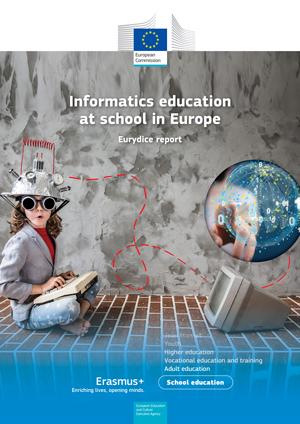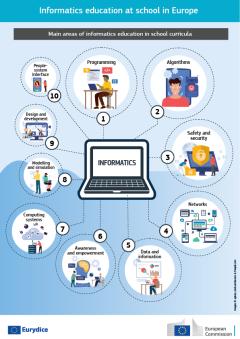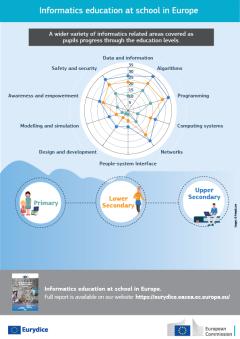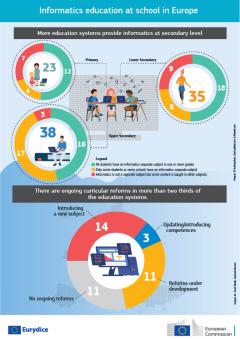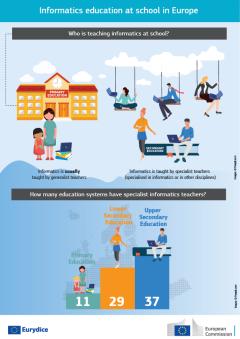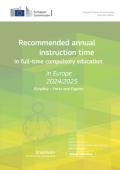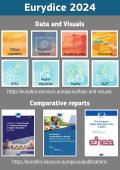Informatics education at school in Europe
Educating students at school in informatics is essential to equip every citizen with the basic knowledge required to participate, influence and contribute to the development of the digital world. Moreover, the digital economy, which is due to play a key role in Europe’s recovery from the pandemic, requires digitally competent citizens and workers.
Informatics is still a relatively new discipline in school education, and the name and focus of the related school subjects vary across European countries. The analysis of existing competence and curricular frameworks and the related learning outcomes in school curricula across Europe can contribute to building a shared understanding and comparability.
This report examines the subjects that, throughout primary and secondary education, include learning outcomes related to informatics in 37 European countries (39 education systems). It also looks at the qualifications of the teachers of these subjects, training programmes and other support measures available to them.

